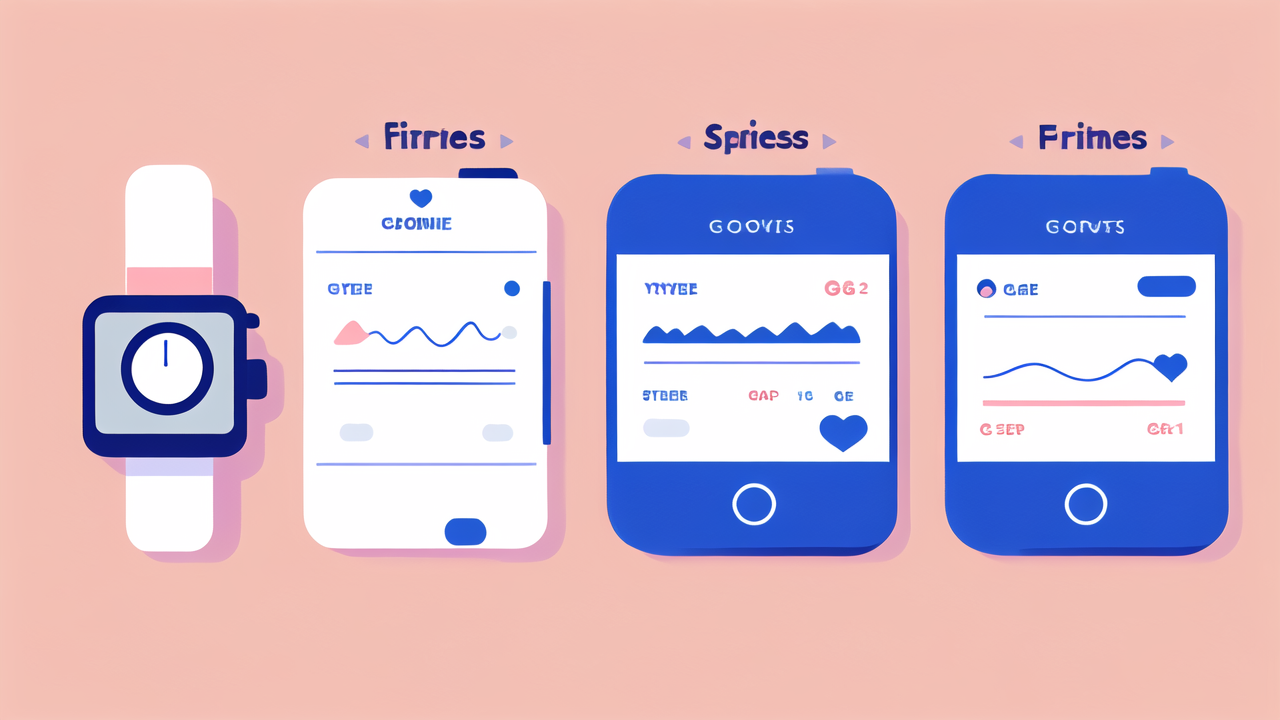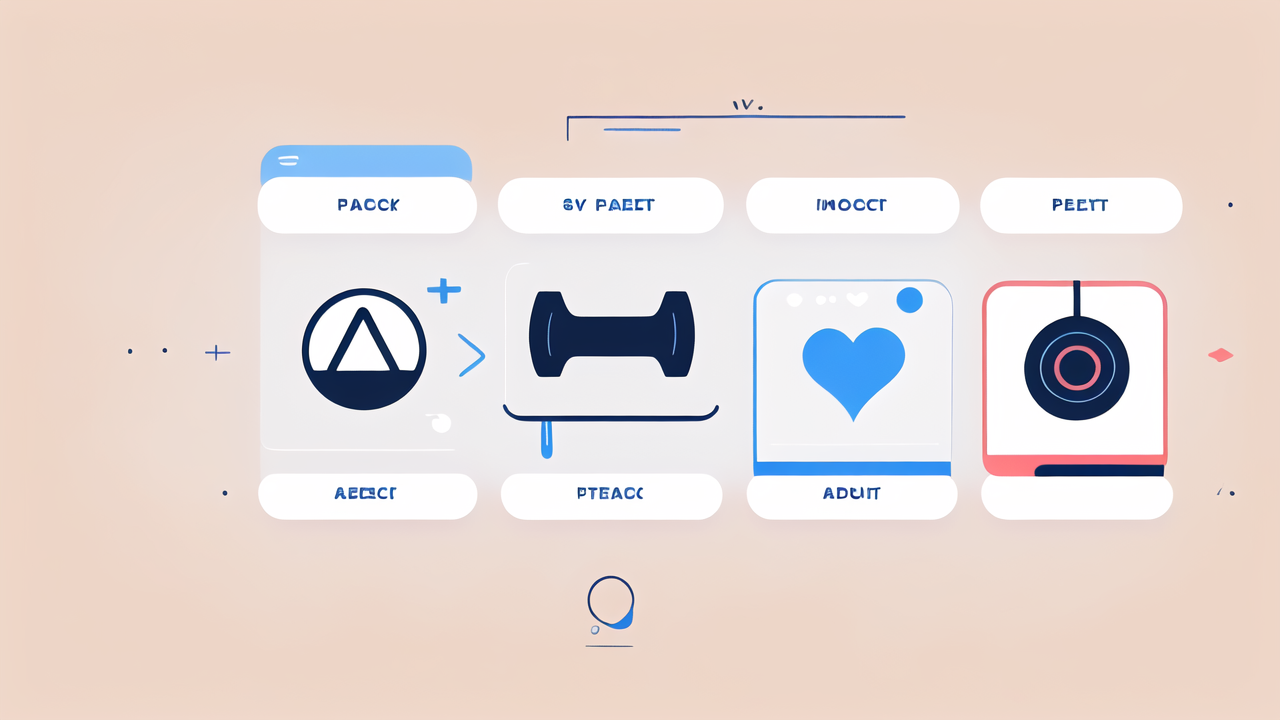Understanding Fitness Tracking: A Primer for Beginners
What is a Fitness Tracker?
A fitness tracker is a wearable device that monitors and records your physical activity. It tracks steps, heart rate, sleep patterns, and calories burned. These devices come in various forms, like wristbands, watches, or clips. They sync with smartphones or computers to provide detailed data. Fitness trackers use sensors to detect movement and other bodily functions. They offer a user-friendly way to keep tabs on your health and fitness goals. Many people find them motivating and helpful in maintaining an active lifestyle.

The Importance of Tracking Fitness in Today's Lifestyle
In our busy lives, it's easy to overlook physical activity. Fitness tracking helps us stay aware of our movement and health. It provides concrete data on our daily habits and progress. This information can motivate us to make healthier choices. Tracking fitness can help prevent sedentary behavior, a major health risk. It allows us to set goals and see improvements over time. For many, it's a tool for accountability and consistency in their fitness journey. Fitness tracking can also help identify patterns in sleep, stress, and overall well-being.
Common Types of Fitness Trackers on the Market
There are several types of fitness trackers available today. Here are some common ones:
- Basic step counters: These simple devices track daily steps and distance.
- Advanced activity trackers: They monitor steps, calories, and sleep patterns.
- GPS watches: Ideal for runners and cyclists, they track routes and pace.
- Heart rate monitors: These focus on cardiovascular health and workout intensity.
- Smartwatches: They combine fitness tracking with smartphone features.
- Specialized trackers: Some focus on specific activities like swimming or weightlifting.
Each type caters to different needs and fitness levels. Choose one that aligns with your goals and lifestyle.
Advanced Strategies for Maximizing the Benefits of Fitness Tracking
Setting Realistic Goals and Benchmarks
Setting goals is crucial for effective fitness tracking. Start by assessing your current fitness level. Set small, achievable goals to build momentum. For example, aim to increase your daily step count by 500 each week. Use your tracker's data to create personalized benchmarks. Be specific with your goals, like "10,000 steps daily" or "30 minutes of exercise 5 days a week." Adjust your goals as you progress to keep challenging yourself. Remember, realistic goals lead to sustainable habits. Celebrate small victories to stay motivated. Your fitness tracker can help you monitor progress and stay on track.

Analyzing Data for Enhanced Fitness Insights
Your fitness tracker collects a wealth of data. Learn to interpret this information for better results. Look for patterns in your activity levels throughout the week. Identify peak performance times and potential areas for improvement. Compare your sleep patterns with your energy levels and workout performance. Use heart rate data to optimize your workout intensity. Many trackers offer insights on recovery time and stress levels. Pay attention to these metrics to avoid overtraining. Some advanced trackers can even suggest workout adjustments based on your data. Regular analysis helps you make informed decisions about your fitness routine.
Leveraging Tracking Tools for Personalized Training
Fitness trackers offer various tools to enhance your training. Use the built-in workout modes for accurate tracking of specific activities. Many trackers provide guided workouts tailored to your fitness level. Take advantage of interval training features for efficient workouts. Use sleep tracking to optimize your rest and recovery. Some trackers offer stress management tools like breathing exercises. Leverage social features to connect with friends for motivation and friendly competition. Explore third-party apps that integrate with your tracker for more specialized training. Remember to update your tracker's software regularly for new features and improvements.
The Impact of Fitness Tracking on Long-Term Health and Wellness in the United States
The Role of Fitness Tracking in Preventing Disease
Fitness tracking plays a significant role in disease prevention in the U.S. Regular physical activity, monitored by trackers, can reduce the risk of chronic diseases. These include heart disease, diabetes, and some cancers. Trackers encourage consistent movement, combating the risks of a sedentary lifestyle. They help maintain healthy weight levels, a key factor in disease prevention. Sleep tracking contributes to better rest, which is crucial for overall health. Many trackers now monitor stress levels, aiding in mental health management. By promoting awareness and healthy habits, fitness trackers support preventive healthcare. This approach aligns with the growing focus on wellness in the U.S. healthcare system.

Enhancing Lifestyle Choices Through Data-Driven Decisions
Fitness trackers empower Americans to make informed lifestyle choices. The data collected provides a clear picture of daily habits and their impact. Users can see how their choices affect sleep quality, stress levels, and overall health. This awareness often leads to better decision-making in diet and exercise. Many people use tracker data to improve their work-life balance. The visual representation of progress motivates users to maintain healthy habits. Some trackers offer reminders to move, drink water, or take breaks. These prompts help integrate healthy choices into daily routines. By quantifying lifestyle factors, trackers make it easier to set and achieve wellness goals.
The Future of Fitness Tracking: Trends and Predictions in the U.S.
The future of fitness tracking in the U.S. looks promising and innovative. We can expect more advanced sensors for more accurate health monitoring. Integration with artificial intelligence will provide deeper insights and personalized recommendations. Wearable technology may expand beyond wrists to smart clothing and accessories. There's a trend towards more holistic health tracking, including mental and emotional well-being. We might see increased integration with healthcare systems for preventive care. Virtual and augmented reality could enhance the workout experience with fitness trackers. Privacy and data security will likely become more prominent concerns. The focus may shift from individual metrics to overall lifestyle quality. As technology advances, fitness trackers will play a larger role in personal health management.




Leave a comment
This site is protected by hCaptcha and the hCaptcha Privacy Policy and Terms of Service apply.